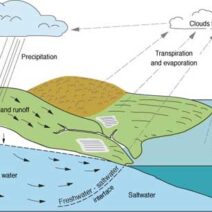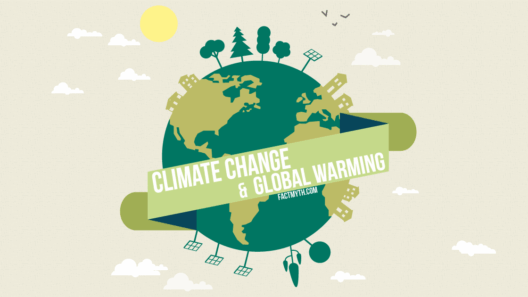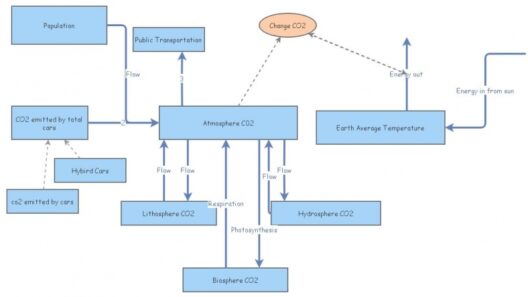As global temperatures continue to rise, the repercussions of climate change are increasingly manifesting in various aspects of our daily lives. The term “global warming” transcends an abstract environmental issue; it vehemently embodies a personal crisis affecting our health. Understanding the myriad ways by which climate change exerts a personal toll on health is imperative for fostering awareness and galvanizing action.
The phenomenon of rising temperatures is inextricably linked to a plethora of health outcomes. Extreme heat episodes, scientific jargon for prolonged and intense periods of elevated temperatures, pose a significant risk. These events exacerbate pre-existing health conditions such as cardiovascular diseases and respiratory ailments. Vulnerable populations, including the elderly and those with chronic illnesses, are disproportionately affected. Heat-related illnesses, ranging from heat exhaustion to potentially lethal heat strokes, underscore the direct health implications of our warming planet.
Furthermore, air quality is intricately tied to climatic conditions. Increased temperatures contribute to the formation of ground-level ozone, a significant component of smog that can severely impair respiratory function. This air pollutant is particularly concerning in urban settings, where population density exacerbates exposure levels. Individuals with asthma, chronic obstructive pulmonary disease (COPD), and other respiratory disorders face heightened risks during peak ozone days, prompting urgent discussions about air quality regulations amid changing climate policies.
The multifaceted nature of climate change extends to its influence on vector-borne diseases. As temperatures rise, so does the geographic range of vectors such as mosquitoes and ticks. This expansion facilitates the transmission of diseases like Lyme disease and West Nile virus, effectively altering the epidemiology of infectious diseases. As warmer climates become more hospitable to these vectors, public health systems are challenged to adapt. Enhanced surveillance and preventive measures become paramount in mitigating the health risks associated with these emerging pathogens.
Moreover, the linkage between climate change and mental health is increasingly recognized. The psychological strain associated with extreme weather events, such as hurricanes, wildfires, and floods, can lead to exacerbated anxiety, depression, and post-traumatic stress disorder (PTSD). Witnessing the destruction of homes and communities can leave lasting scars on individuals’ mental well-being. The phenomenon of ecological grief—mourning the loss of habitats and biodiversity—further compounds the mental burden born out of an unrelenting climate crisis.
Nutrition is yet another facet of health impacted by climate change. Changing precipitation patterns, rising temperatures, and extreme weather events can disrupt food supply chains, leading to food insecurity and malnutrition. Crops may fail due to droughts, or conversely, suffer from flooding, adversely affecting yields and availability. The nutritional quality of food is also compromised; elevated levels of carbon dioxide can diminish the nutrient density of staple crops. This interplay requires urgent attention as it poses significant implications for public health and food systems worldwide.
Climate change also intensifies the frequency and severity of natural disasters. Hurricanes, typhoons, and floods are becoming more catastrophic, leading to widespread displacement and injury. The health implications of displacement are profound, with access to healthcare services often diminished in the wake of disasters. Communities must grapple with the urgent need for care amid a backdrop of chaos, highlighting the importance of disaster preparedness and resilient healthcare systems.
On a broader scale, systemic inequities exacerbate the health impacts of climate change. Low-income communities and marginalized populations frequently bear the brunt of climate-related health crises. These groups often lack access to adequate healthcare and resources that could mitigate health risks. Moreover, their living conditions may expose them to greater environmental hazards, such as polluted air and inadequate housing. Addressing these disparities is essential to fostering equitable health outcomes in the face of climate change.
As the dialogue around climate change evolves, individuals and communities have begun to recognize the agency they possess in confronting this existential crisis. Advocating for sustainable practices—be it reducing fossil fuel consumption, promoting renewable energy sources, or supporting local agriculture—can create a ripple effect that bolsters community resilience. Collective action, policy reform, and informed decision-making are vital components in the quest for a healthier future.
Educational initiatives play a crucial role in informing the public about the health impacts of climate change. Public awareness campaigns can effectively alert communities to the risks associated with extreme heat, poor air quality, and emerging diseases. Schools and healthcare providers can collaborate to disseminate information, empowering individuals to take proactive measures in safeguarding their health. Building a culture of sustainability requires robust education that not only elucidates the risks but also offers solutions.
In summary, global warming intricately entwines with public health, manifesting in various forms ranging from heat-related illnesses to vector-borne diseases, food security challenges, mental health struggles, and systemic inequities. Understanding these connections is paramount for fostering a comprehensive response to the climate crisis. As we grapple with the multifaceted implications of climate change, fostering resilience and advocacy becomes increasingly essential. The health of our communities—and the planet—depends on our collective actions today for a sustainable tomorrow.








